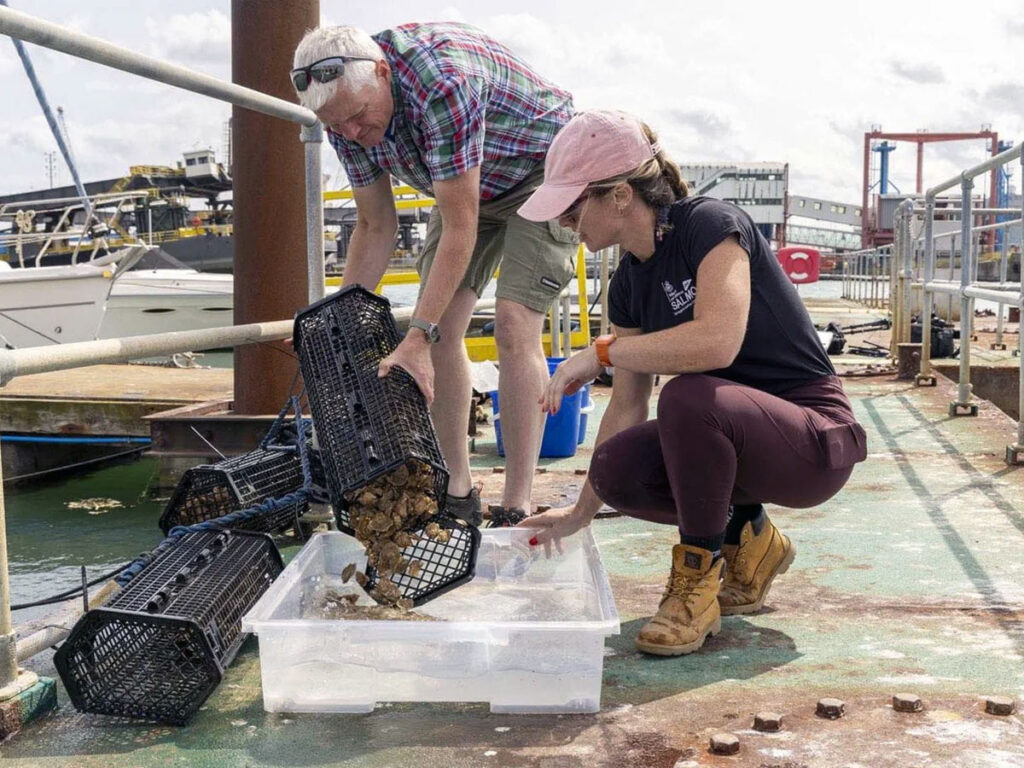
Last updated: 10 May, 2025 @ 12:11
An unlikely collaboration between the Royal Navy and a native oyster restoration project is aiming to help restore oyster populations and improve water quality in the Solent, Hampshire
European flat oysters, also known as native oysters, are being reintroduced to the Solent through a joint Ministry of Defence conservation project which hopes to boost marine life and help clean the waters of the strait between the Isle of Wight and the Hampshire coast.
It is hoped that the re-introduction of 2,000 oysters to the area after nearly half a century will encourage marine life back to the heavily-used waters.
The Royal Navy’s vessels form part of 130,000 movements per year around Portsmouth Harbour.
Re-establish native oyster populations
The initiative, known as the Whale Island Native Oyster Restoration Project, is a collaboration between the Salvage and Marine Operations (SALMO) Wrecks team, part of the MOD’s Defence Equipment and Support (DE&S) organisation; the Royal Navy; the Defence Infrastructure Organisation (DIO) and the Blue Marine Foundation (BMF) charity.
Several oyster crates have been installed by the project team on pontoons at the southern end of Whale Island to grow juvenile oysters – in a bid to re-establish a healthy population of the native species.
‘A brilliant initiative’
Defence minister Luke Pollard said: “The Royal Navy has proudly used the Solent for centuries and is dedicated to supporting the local area, including finding ways to offset collective environmental impacts.
“This is a brilliant initiative, and the partnership between the Royal Navy and partners shows that through collaboration, we can improve the marine environment and strengthen biodiversity – to the benefit of our forces too.”
‘A lost native keystone species’
The project was established and then managed for the Ministry of Defence by marine biologist Harriet Rushton, environmental manager for SALMO Wrecks.
“These oysters are being grown for conservation, re-introducing a lost native keystone species in the Solent, which will enhance biodiversity and help clean the water,” she said.
“This shows the Ministry of Defence’s commitment to improving the UK’s ecosystem and helping to address climate change, thus contributing to minimising climate and ecosystem pressures on MOD training and operations.”
The emergence of the Pacific oyster
The Solent was once the largest fishery in Europe for the flat (Ostrea edulis) oysters, but there are few remaining, having been replaced by the invasive Pacific oyster (Magallana gigas), with potentially detrimental consequences to the local marine environment.
However, in August 2024, Fishing News reported that a recent study found that expanding Pacific oyster farming has ‘minimal impacts on the ecosystem – and some evidence of greater biodiversity around farms’.